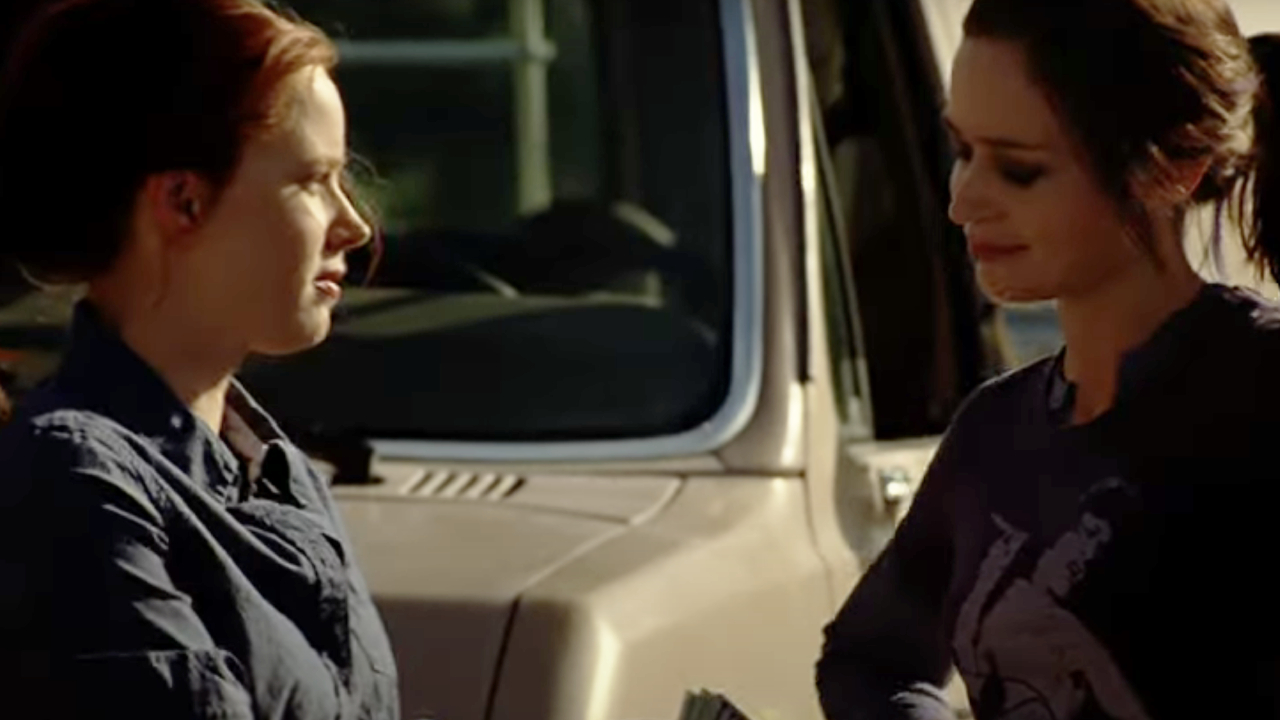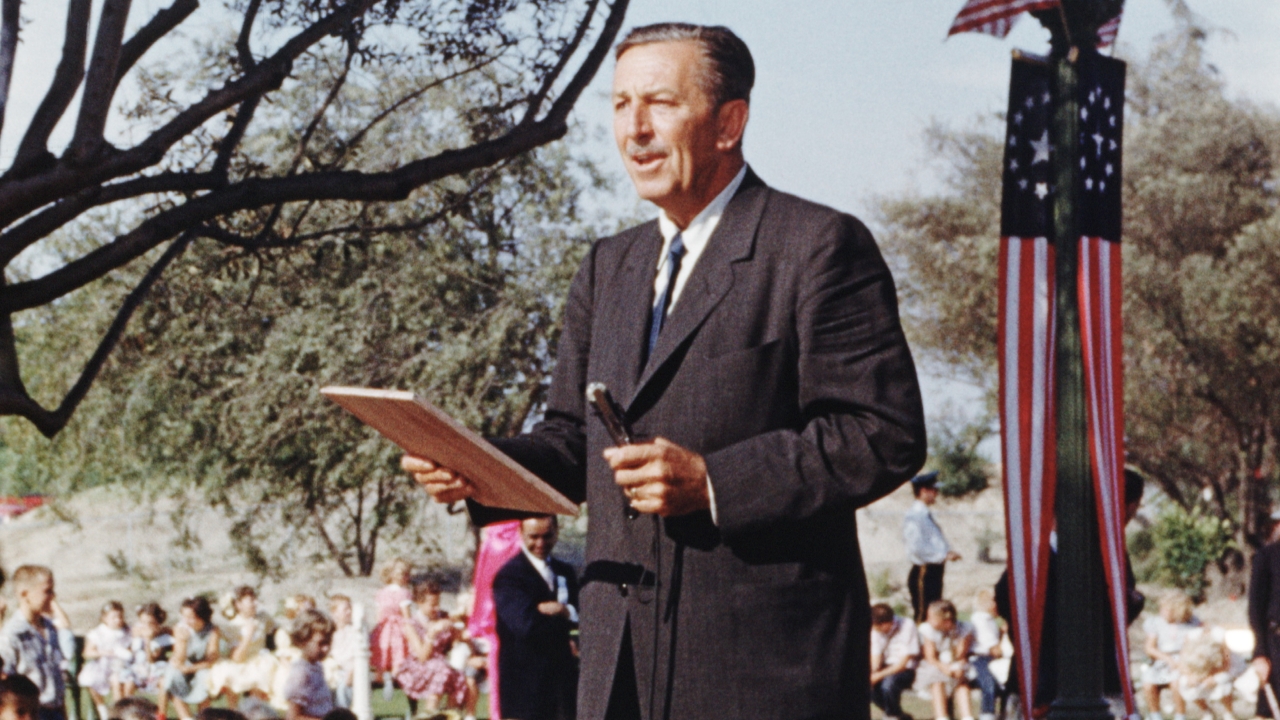Sundance Interview: Sunshine Cleaning Director Christine Jeffs

Your Daily Blend of Entertainment News
You are now subscribed
Your newsletter sign-up was successful
The last in our series of interviews for Sunshine Cleaning had me sitting with the woman who brought Megan’s story to life. Prior to sitting with me, Christine Jeffs was relaxing in a nice leather chair. Little did she know that our PR contact and me would be moving furniture, and in the process nearly take Christine’s head off. Imagine that headline, and the end of my and the PR contact’s careers. Happily, the chairs were moved around with no known fatalities.
Below I talk with Christine about directing Emily Blunt and Amy Adams, along with the dynamics of working with child actors. She shares her insight on preparing a vision, and following through. So, with the introduction complete we continue to the final interview on our trek through snowy Parky City, Utah.
This is number two where you’ve come in a little bit late. Is it difficult for you to come in late on a project like that?
Yeah, well we had preproduction time on this film. Where on Syvia there wasn’t much. So there was normal preproduction time and I was on it while we were setting up the whole film and casting it right from the beginning. It really wasn’t too late.
So you had plenty of time?
Oh yeah.
What drew you to the film? This is a comedy, even with the darker tones to it. Why go for the more comedic turn this time?
Your Daily Blend of Entertainment News
My short film, which was at Cannes and here in 95, that was complete visual comedy without dialogue or anything. So that’s where I started. I’ve directed commercials which were funny. I enjoyed it. I enjoyed the characters and script, and the relationships. I like the situation the girls were in.
What was it like working with Emily and Amy?
Amazing, they’re both really really talented and dedicated. It was really amazing. We had to work fast, but they were fun.
One of my favorite parts of the movie was the scene where Norah was with Lynn, and she climbs up underneath the tracks. That was a really beautiful shot, and I loved how that sort of introduced a little bit the past with their mother. What is that choice about for you?
Yeah, it’s interesting because there’s a sense of kind of danger. In that scene when she climbs up under that train she’s screaming, she’s laughing and she’s crying at the same time. I sort of felt that was what the experience was really like for the character. You go there to kind of scream as loud as you can, and not be heard in a way. I just like the fact that we actually shot the sparks in the day, we did a plate for the shot where she throws her head back, then we should sparks for real and other sparks were added post production. I guess visually it takes it to a more kind of metaphorical kind of space, or a dreamlike…it’s hard to articulate, but it works.
Sometimes it doesn’t work. And it works so well in this movie. And I’m fascinated with it. Not being a director I don’t understand the eye to see when a close up shot of a mouth or quick shots work. And the shots were so well done.
For me it’s just a instinctual thing, we didn’t do storyboards or anything. You just think about what kind of certain emotional moments, certain humorous moments, and they just start to bring images. Whatever it might be, like them carrying the mattress. I just saw that “push you, pull you” kind of thing.
It’s done very well in this movie. Do you enjoy working with child actors?
Yes. I love working with child actors, I really do. He [Jeremy] was absolutely brilliant. It’s a real trip because it’s the same process, it’s just about keeping them in the moment, and I just see myself as this guide trying to provide a supportive environment. Just being there as a guide if need be. With a child actor you have to allow a kind of process where their innocence, where their real truth can come out. Where their innocence and real personality can come out, and not be squashed by the technicalities and the logistics. The scene in the car when he’s with Alan Arkin, and Alan’s going [imitates scene]…that’s really intimate. Allowing him the space to listen, and not say the lines, you can see the cogs turning as you look at him. When he’s thinking and listening to Alan, that’s a beautiful thing in his performance. He just listens so well, and then you get a real connection between the characters that doesn’t feel like the forced by rote kind of acting. It’s very natural and real.
Alan Arkin was great in the film. I liked how you didn’t portray him as this bumbling idiot. You showed him as this honest man.
Yeah, his character had a lot of pride. Like, “this is what I do!” He didn’t take [unintelligible]. He had this sort of naïve kind of survival thing going on. Like in the very opening when the lady says, “Thursdays are not good for me.” He’s just like, “OK I’ll come back tomorrow.” He’s just that kind of guy who doesn’t pull over when he’s hit on the chin. And he’s very endearing.
Now, the cleaning business itself is the catalyst, the backdrop of the story, but it’s not the most important thing. When you were preparing to do the movie, did you really want to focus on getting that accurate?
It was absolutely important to get it accurate. We met with a real crime scene cleaner, a guy named Enrique who works in Albuquerque. Our art department did extensive research, and he was a resource to us all the way through the film. It’s very important that it.
Yeah, it didn’t seem right to throw a bloody mattress in the garbage.
Yeah, but it was interesting finding out there were rules about that kind of stuff. As the film goes on they start to grow. In the supermarket she says, “Oh, it’s just like cleaning houses, but with a bit of blood there.” And that’s how they get started, completely naïve.
I loved the relationship between Rose and Oscar. You had a shot of him waiting outside school, and it pans over and he just licks the wall. It was a weird moment that was just so perfectly that character.
I think that’s because you see his cogs work. You see him, and you wonder what’s he going to do, then he takes you by surprise. As he turns around he just has this look of, “fuck the world.” At that age he knew how to translate all of that in a wall lick.
Yeah, then you have Rose getting out of the shower with the, “I am strong,” bit. Trying to be normal. And then by the end the whole family grows together, and I loved the way that was shown.
Oh, that’s great.
Is there anything else on your plate? Or is the strike keeping you down in terms of work?
I’ve been working on an adaptation by Jane Smiley called, Horse Heaven, which I’m really excited about.
What’s the novel about?
It’s a novel about a huge set of characters. It’s set in the racehorse world.
Staff Writer at CinemaBlend.

